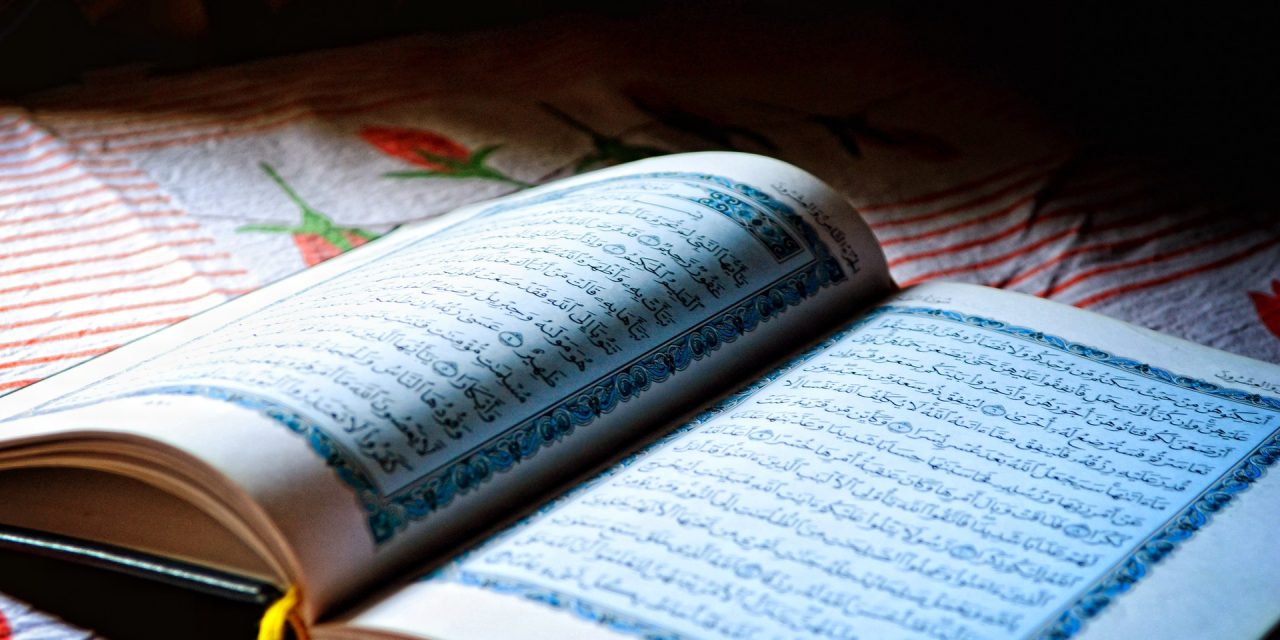Moving on to our twentieth letter of the Arabic alphabet (ق), we will look at various words beginning with (ق) along with more culture/language related facts.
Let’s begin with looking at your basic forms of the letter ق.
Initial ق, as in the word “قَميص” meaning “shirt”.
Medial ـق , as in the word “حَقيقة” meaning “fact”.
Final ـق, as in the word “حقوق” meaning “rights”.
To pronounce the “ق”, try making a “Q” sound in the back of your throat.
Before looking at the following words and phrases, can you think of words beginning with ق?
قَالَ: to say هَل قُلت شيئاً؟ Did you say something?
قَبْل: before/earlier هَل تَناولَت الفُطور قَبْل الذِّهاب للعَمَل؟
Did you eat breakfast before going to work?
قَتَلَ: to kill .لا أحِبُ قَتل الحَشَرات I don’t like to kill insects.
قَرَأَ: to read .أثناء الحَجر الصِّحي، قرأتُ الكَثير مِن الكُتُب
During quarantine, I read a lot of books.
قِصة: story .تبدأ قِصة حياتي في هذه المَدينة
The story of my life begins in this city
قَلْب: heart .قلبي يَنْبُض بِسرعة My heart is beating fast.
قَلَم: pen/pencil هَل يُمكِنَني استعارة قَلَم مِن فَضلك؟
Can I please borrow a pen?

Image provided by Yasmine K.
 قَهوة: coffee
قَهوة: coffee
How does American coffee differ from Arabic/Turkish coffee? The difference is in the method of coffee preparation. The ground beans are boiled in a special pot called إبْريق ibreeq. The coffee is boiled with sugar and sometimes cardamom هَيل hail then served in a small cup called فِنْجان finjan and allowed to sit for a few moments for the grounds to settle. It is never served with cream or milk but is always served with a thick foam رَغْوة raghweh on top. Arabs consider the more foam, the better the coffee. There are variations of Arabic coffee which are regionally based. For example, in the Gulf, cardamom, cinnamon قِرفة qirfeh and saffron زَعفران za’faran are added which makes the color of the coffee a golden yellow.
قَمَر: moon .أستطيعُ رُؤية القَمَر والنُجوم I can see the moon and the stars.
قَوي: strong/powerful
قائِد: leader/commander .إنه قائِد قوي He is a strong leader.
قُدرة: ability/capacity .لَيسَ لَدي القُدرة على مُشاهَدة أفلام الرُعب
I don’t have the ability to watch horror films.
قَديم: old/ancient .أعيشُ في مَنزِل قَديم يَحتاج إلى الكثير مِن الإصلاح
I live in an old house that needs a lot of fixing.
قَرَرَ: to decide .لا استطيعُ ان اقَرِرُ ماذا اطلُب للعشاء
I can’t decide what to order for dinner.
قَريب: close/near .أتمنى لو كان عَمَلي أقرَب إلى المَنزِل
I wish my work was closer to home.
قَصير: short .في بَعْض البُلدان، يكون الشتاء قصيراً والصَيف طويلاً
In some countries, winters are short, and summers are long.
قَليل: few/a little هل تُريد القليل مِن السُكر في الشاي؟
Would you like a little sugar in your tea?
قاموس: dictionary هل لديكَ قاموس إنجليزي – عربي؟
Do you have an English – Arabic dictionary?
قواعِد: rules/principles/grammar !اتبع القوانين Follow the rules!

Image via Pixabay
القُرْآن: the holy book of Islam .يَحفظ عَشر آيات مِن القُرآن كُل يَوم
He memorizes ten versus from the Quran every day.
 The tiny word قَدْ can have the following multiple meanings (had, has, may, might, about to, certainly, indeed)
The tiny word قَدْ can have the following multiple meanings (had, has, may, might, about to, certainly, indeed)
had and has
She has/had gone to school. .قد ذهبت إلى المدرسة
about to
The game is about to begin. .قد بدأت المباراة
Certainly/indeed/surely
Let’s look at an example from the Quran: “قَدْ بَيَّنَّا لَكُمُ الْآيَاتِ إِنْ كُنْتُمْ تَعْقِلُونَ”
“We have certainly made clear to you the signs, if you will use reason.”
(Taken from Chapter (3) sūrat āl ʿim’rān (The Family of Imrān) Verse (3:118)).
may and might
She may/might go to school. .قد تذهب إلى المدرسة
Spoken Arabic

Image provided by Yasmine K.
In spoken Arabic, the sound of ق is sometimes replaced with other sounds depending on dialect.
What are these other sounds?
The first sound is the Hamza “ء” or in English, a glottal stop.
The second sound is a “g” sound as in the English word “girl”.
The third sound is “ك” or “k”.
For example, in Palestine, depending on which city you are in, you could hear “ق” pronounced as hamza, “ك”, or “g”.
In Jordan and Palestine, some men pronounce “ق” as “g” due to it sounding more Bedouin hence more masculine. Whereas, women pronounce it as a hamza since it’s softer to sound more feminine.
In Lebanon and Syria, most people pronounce the “ق” as a hamza.
Here is a short clip in Jordanian dialect of a man excited to drive his new car. Listen closely to hear how words with “ق” such as: قواعد، سواقة، بتلزق، بقلقني، طريق are being pronounced.
Till next time, happy Arabic learning! 
Read more: blogs.transparent.com






Recent Comments